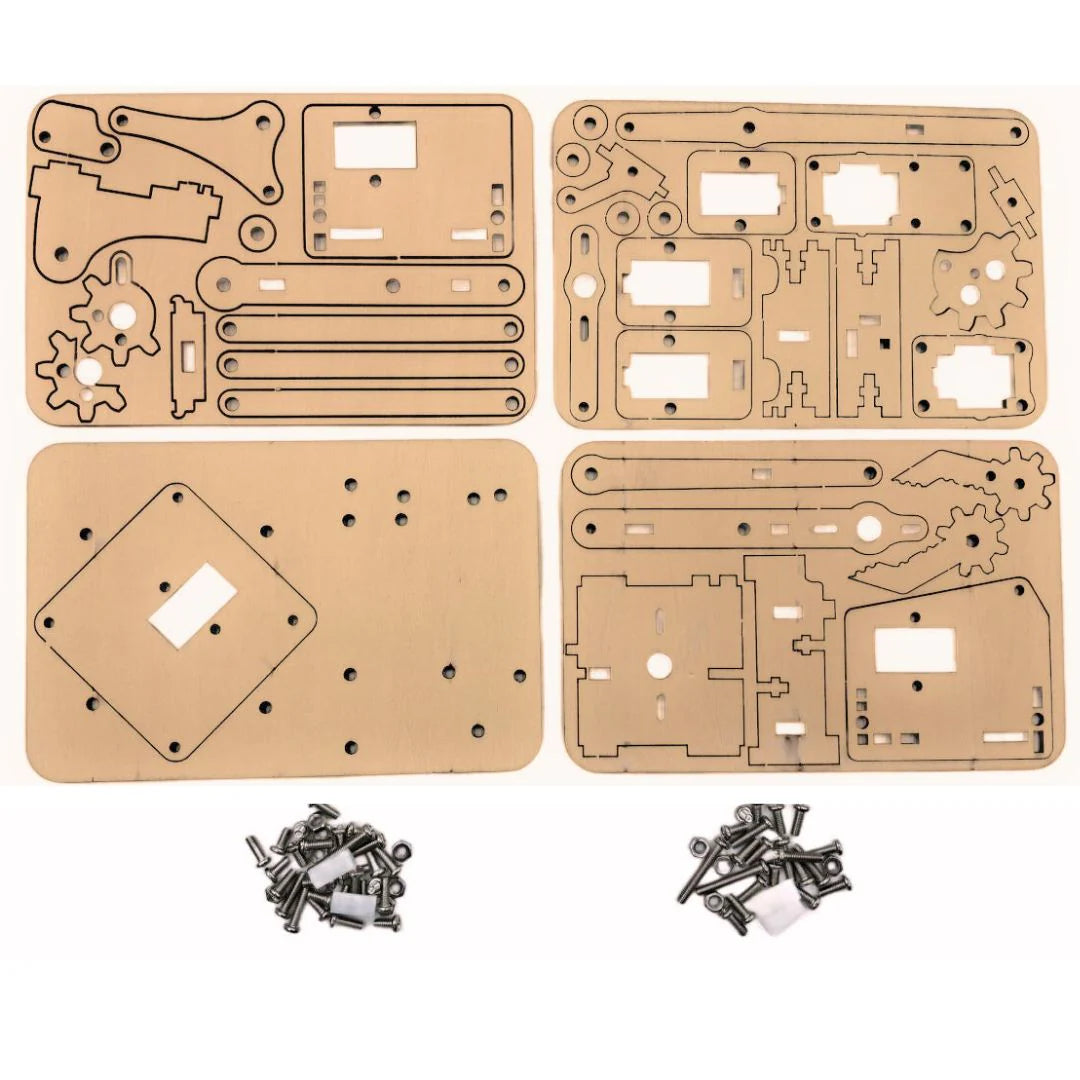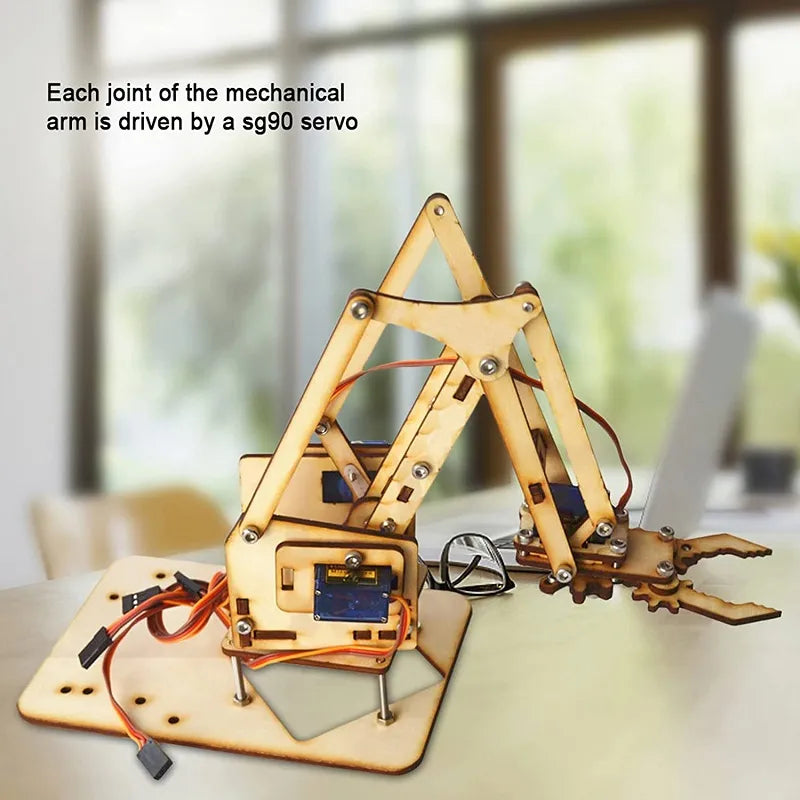MAJESTRONICZ
3 DOF (Degrees of Freedom) Robotic Arm
3 DOF (Degrees of Freedom) Robotic Arm
Couldn't load pickup availability
🪵 Material & Plates
-
Laser‑cut sheets (usually 2–3 mm plywood/MDF)
-
Four rectangular panels each containing:
-
Base plate with mounting holes for turntable/servo
-
Shoulder & elbow link plates (long slender arms with slot‑in joints)
-
Wrist/effector plates (claw‑like gears and end‑effector cutouts)
-
Servo mounting blocks (rectangular pieces with servo body cutouts)
-
🔩 Hardware Kit
-
Screws, nuts & nylon spacers for stacking plates and affixing servos
-
Washers to space moving links apart
-
Brass or nylon standoffs to create pivot points (bushings)
🤖 What It Becomes
-
3 Degrees of Freedom:
-
Base rotation (yaw) via a standard hobby servo
-
Shoulder pitch (up/down) via second servo
-
Elbow pitch (up/down) via third servo
-
-
Optionally add a fourth micro‑servo for a simple gripper or “wrist”
🛠️ What You’ll Need (in Addition)
-
3–4 standard micro servos (e.g. SG90/MG90S)
-
Servo controller (Arduino, PCA9685, etc.)
-
Power supply (5–6 V for servos)
-
Basic hand tools (screwdrivers, pliers, hex keys)
Share



